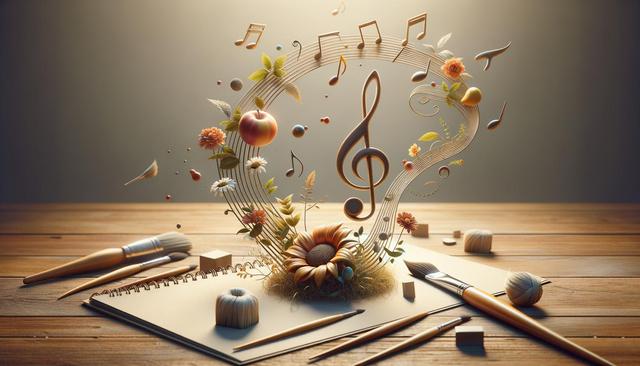The Lasting Impact of Music and Arts Education
Music and arts education plays a critical role in shaping well-rounded, creative, and emotionally intelligent individuals.

Enhancing Cognitive Development and Academic Performance
One of the most compelling reasons to invest in music and arts education is its positive effect on cognitive development. Numerous studies have shown that students who engage in music or visual arts tend to perform better in core academic subjects such as mathematics, reading, and science. This is largely because artistic activities stimulate areas of the brain involved in critical thinking, problem-solving, and memory retention.
Skills gained through creative disciplines often translate into improved academic performance. For example:
- Learning to play an instrument enhances spatial-temporal skills, which are essential for understanding math concepts.
- Visual arts help students develop attention to detail and visual-spatial reasoning.
- Engaging in theater or dance can boost language acquisition and reading comprehension.
Furthermore, arts education encourages perseverance and discipline—traits that are essential for academic success. Whether it’s practicing a song repeatedly or revising a piece of artwork, these activities teach students to embrace challenges and strive for improvement.
Fostering Emotional Intelligence and Mental Health
Beyond academic achievement, music and arts education offer emotional and psychological benefits that are equally important. The creative process provides a healthy outlet for expressing thoughts and emotions, which can be especially beneficial for young people navigating the complexities of adolescence.
Participation in the arts has been linked to reduced levels of stress, anxiety, and depression. This is because creative expression allows individuals to process their feelings in a constructive way. Moreover, being part of a choir, orchestra, or drama group fosters a sense of belonging and community, which supports emotional well-being.
Key emotional benefits include:
- Improved self-awareness and empathy
- Better emotional regulation and coping strategies
- Increased self-confidence through performance and artistic achievement
These emotional skills are not only crucial for personal development but also beneficial in social and professional settings later in life.
Encouraging Creativity and Innovation
In today’s fast-paced world, creativity is increasingly recognized as a valuable skill across all industries. Music and arts education nurture creative thinking by encouraging students to explore different perspectives, experiment with new ideas, and take thoughtful risks.
Through artistic learning, students learn to approach problems with flexibility and imagination. This kind of thinking is essential for innovation in fields ranging from technology to business. Creative education promotes:
- Divergent thinking—the ability to generate multiple solutions to a problem
- Originality and inventiveness
- Resilience in the face of failure or criticism
These qualities not only enhance students’ artistic abilities but also prepare them for the demands of an ever-evolving workforce that values ingenuity and adaptability.
Building Cultural Awareness and Social Understanding
Music and arts education also play a crucial role in promoting cultural literacy and social awareness. Through studying various art forms, students gain insights into diverse traditions, histories, and worldviews. This exposure helps cultivate a broader understanding of the world and fosters respect for different cultures and communities.
Engaging with cultural content encourages students to appreciate the richness of human expression. For instance:
- Learning about traditional music from different regions exposes students to global rhythms and musical structures.
- Exploring artworks from various time periods provides context about historical events and societal changes.
- Participating in multicultural performances builds empathy and inclusiveness.
These experiences not only enrich students’ educational journey but also equip them with the interpersonal skills necessary for harmonious coexistence in an increasingly interconnected world.
Preparing for Diverse Career and Life Opportunities
Contrary to the perception that music and arts education only benefit those pursuing careers in the arts, the skills developed through creative learning are highly transferable. Many professions value the abilities honed through artistic training, including collaboration, communication, and project management.
Whether a student becomes a professional musician, graphic designer, teacher, engineer, or entrepreneur, the competencies gained through arts education are widely applicable. These include:
- Effective teamwork and leadership skills
- Time management through rehearsals and project deadlines
- Presentation skills developed through performances and exhibitions
Moreover, the arts can serve as a lifelong source of joy and personal fulfillment. Even if they do not pursue the arts professionally, individuals who have had access to music and arts education often carry a deep appreciation for culture and creativity throughout their lives.
Conclusion: Investing in a Well-Rounded Future
For educators, parents, and policymakers, the value of music and arts education should not be underestimated. These disciplines contribute significantly to the intellectual, emotional, and social development of students. By supporting arts programs in schools and communities, we encourage the growth of future generations who are not only academically capable but also emotionally intelligent, culturally aware, and creatively equipped to face the challenges of tomorrow.